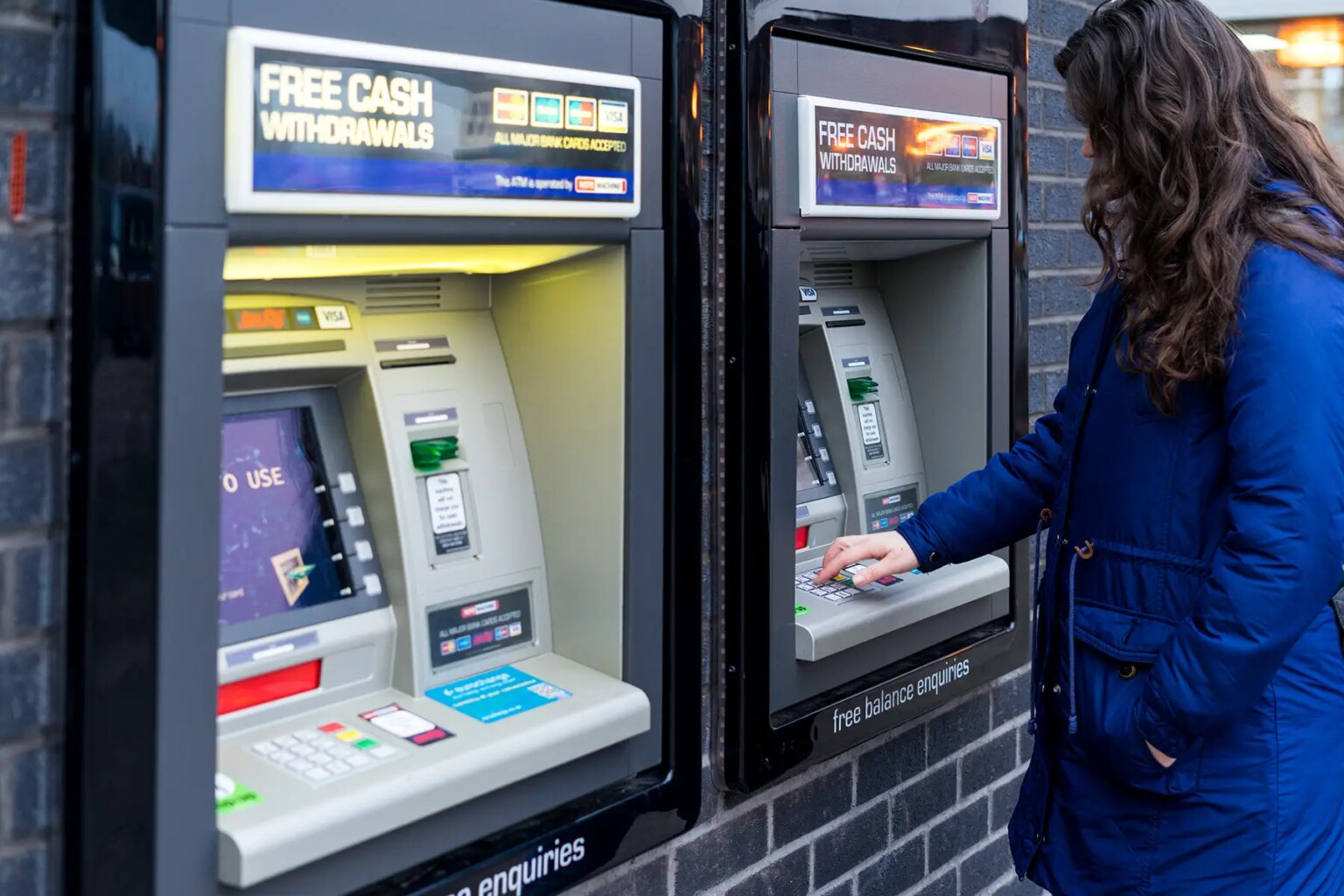The UK has long been one of the major financial centers of Europe. Residents have a number of different banks to choose from, each offering various packages tailored towards different customer groups, from students in the UK to those looking to save for their retirement in Britain. This guide from HSBC, one of the UK’s biggest banks, explains banking in the UK and what to expect as an expat resident.
This guide to banking in the UK includes sections on:
- The banking system in the UK
- Currency in the UK
- Banks in the UK
- Banking services in the UK
- Opening a bank account in the UK
- Payment methods in the UK
- Banking fees in the UK
- Offshore banking in the UK
- Banking security and fraud in the UK
- Making a complaint about banks in the UK
- Alternatives to using banks in the UK
- Useful resources
Wise
Do your finances go beyond borders? Then you need a fast and secure way to move money internationally. Wise is a global leader in online international money transfers, letting you move money at an exchange rate several times cheaper than your bank. Whatever your personal or business needs, Wise can make your money go further.
The banking system in the UK
The UK banking sector consists of a number of private UK banks, international banks, and building societies. A few large banks dominate the sector, competing for market position. In total, there are currently 344 banks in the UK and 52 building societies. There has been a steady growth of online and mobile banking in the UK in recent years; around two-thirds of UK adults using online banking and four in ten using mobile banking. Physical banking, however, remains popular and there are still around 20,000 locations across the UK. The country’s central bank is the Bank of England, which has been state-owned since 1946. Banks in the UK are regulated by the Financial Conduct Authority (FCA).
Currency in the UK
Although the UK has been an EU member since the 1970s, the country opted out of joining the Euro single market currency. Instead, the UK maintained its own currency, the British Pound Sterling (GBP). The value of the GBP is currently 0.89 against the Euro (EUR) and 0.79 against the dollar (USD) as of June 2019. UK currency includes pounds and pence in coin and note form. Coins in circulation are 1p, 2p, 5p, 10p, 20p, 50p, £1, and £2. Notes in circulation are £5, £10, £20, and £50. Notes are currently undergoing some changes; the £5 and £10 note now made from polymer to make them more robust and harder to forge. A new £20 note is also coming in 2020. The £50 note is less common and there has been speculation that these may eventually be phased out.
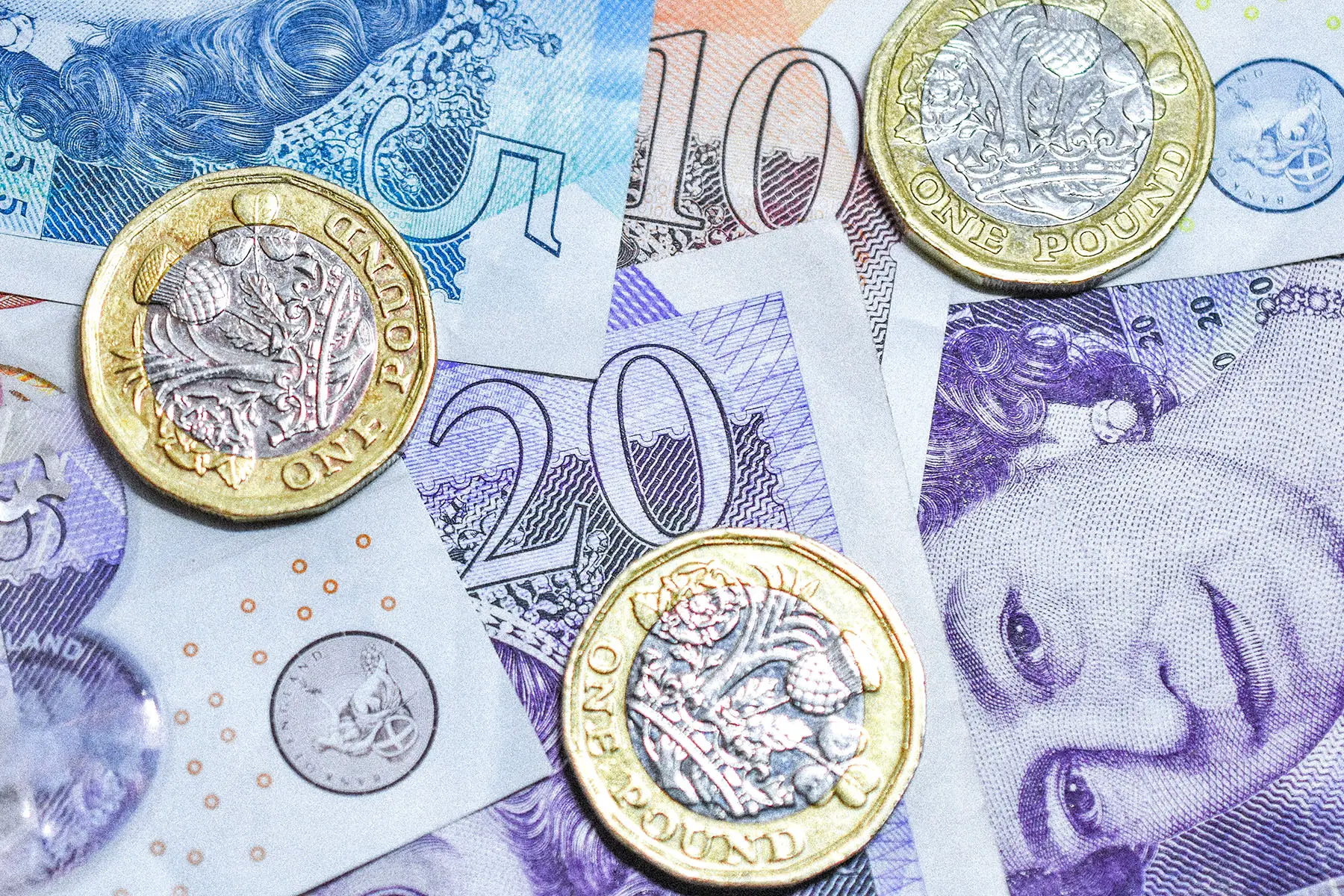
There are also Scottish banknotes in circulation from three Scottish banks: Bank of Scotland, Royal Bank of Scotland, and Clydesdale Bank. These are mainly used in Scotland but can also be used as legal tender in other parts of the UK. They are quite rare outside of Scotland, so don’t be surprised if you hand one to a shop assistant in England, Wales, or Northern Ireland and they initially appear confused!
Cash machines and ATMs in the UK
The UK currently has around 70,000 cash machines, with around 97% of these offering free withdrawals for UK bank cards. ATMs are at banks, on the high street outside retail stores, and inside certain buildings (e.g., train stations, concert venues). Machines that charge you will usually do so at the rate of around £1.50–2.00 per transaction, but they must inform you of the charges and give you the option of proceeding with the transaction if you’re okay with this. Such machines are often in stores such as grocers and newsagents.
Most ATMs take all of the main cards such as Visa, Mastercard, AmEx, and Maestro, as well as foreign cards. Some offer the option of withdrawing Euros instead of GBP. There will usually be a small charge for using foreign cards or withdrawing foreign currency. Link is the largest operator of cash machines in the UK, and you can find the nearest Link ATM here. Visa ATMs in the UK can be found here, and Mastercard ATMs found here.
Banks in the UK
National private banks in the UK
There are several banks in the UK to choose from, each offering specific packages including services for expat residents. The main UK banks have branches on high streets across the country and will also offer online and mobile services. Most banks will open from around 09:00–17:00. The biggest banks in the UK include:
- Barclays
- Co-operative Bank
- Halifax Bank of Scotland
- HSBC
- Lloyds Banking Group
- Metro Bank
- NatWest
- Royal Bank of Scotland
International banks in the UK
Many foreign-owned banks have branches in the UK, although they tend to be located in the bigger cities. Services are largely similar to those offered by national UK banks.
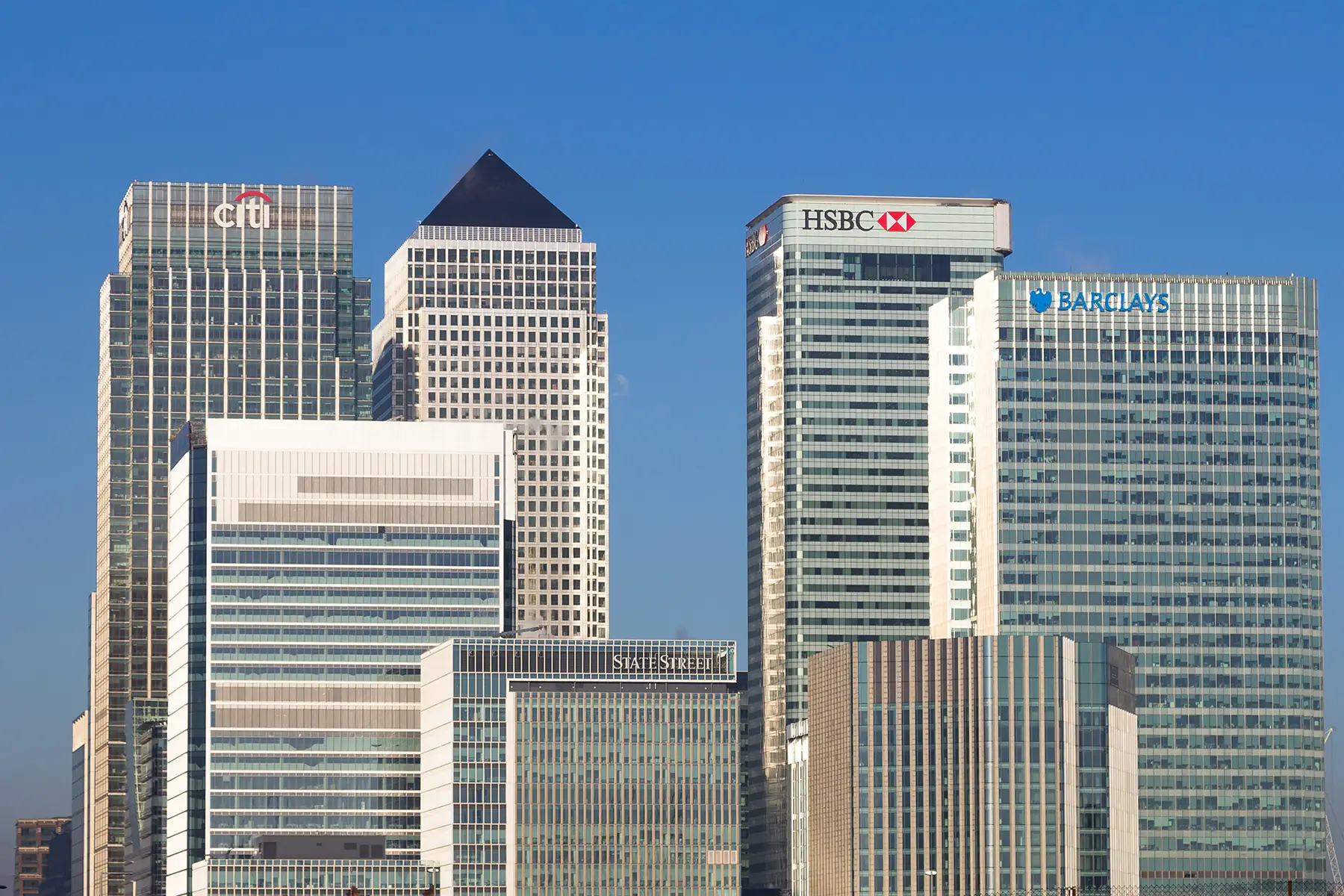
International banking in the UK includes:
- Bank of America
- Citibank
- Santander
- Triodos Bank
Online banks in the UK
A number of online-only banks have appeared in recent years to rival traditional banks. These banks offer accounts that can be operated remotely and are a convenient way of banking for people who travel around a lot. The digital-only banks operating in the UK include:
- Revolut
- Suits me – although not technically a bank, this online service provides accounts with many of the features of traditional banking
A selection of online banking providers can be found in our directory.
Banking services in the UK
Banking in the UK includes the following services:
- Current accounts – most banks offer a range of everyday accounts including standard accounts and products for the likes of students and young people.
- Loans and overdrafts – personal loans are available for things such as home improvement, vehicle purchase, and debt consolidation. Most banks also offer short-term and long-term overdrafts.
- Mortgages – many banks offer mortgage loans in the UK, including first-time buyer and buy-to-let mortgages to customers who meet their criteria.
- Savings and investments – investment options can include placing your money in funds, bonds, shares, or UK pension plans.
- Insurance – many banks offer insurance policies in the UK in areas such as home insurance, life insurance, travel insurance, and car insurance.
- Digital and online banking – internet banking is available through most banks to customers who want a more convenient way of keeping track of their finances.
- Mobile banking – the main banks in the UK now offer mobile banking apps so that customers can access accounts and make payments from their mobile phones and tablets.
- Business banking – there is a range of banking solutions for those starting up a UK business or becoming a freelancer, such as loans, insurance, and business banking advice.
- Expat services – many banking providers have products, services, and account options for international residents and non-residents.
Opening a bank account in the UK
To open a UK bank account, you will usually need a UK address (unless you are opening a non-resident account). Documents that you will need to provide vary from bank to bank, but are likely to include official ID and proof of address (utility bill or council tax bill). See more information in this Expatica guide to opening a bank account in the UK.
Payment methods in the UK
Cash
Cash is still a popular method of payment in the UK. It has declined over the last ten years – from 63% to 34% of all payments – according to an Access To Cash review. Most people in the UK still value using cash and it is the primary form of payment method for transactions such as paying taxi drivers, newsagents, and for transactions under £10.
Checks
Checks (spelled cheques in the UK) are still used as a payment method, mostly for larger payments, but have greatly declined in popularity over the last 10–15 years and now account for less than 1% of overall payments in the UK. You can still request a checkbook with many bank accounts. However, customers no longer receive one as a standard means of payment. Checks in the UK take around four working days to clear.
Debit cards
Debit cards are a popular form of payment across all UK groups. A total of 98% of adults in the UK have a debit card and they are usually issued as standard with most bank accounts. Debit cards normally double up as cash cards to withdraw money from ATMs in the UK. The most popular debit cards in the UK are Visa, Visa Electron, and Mastercard. Debit cards can be used in most stores (some may charge a small fee of around £0.50 for transactions under £5) as well as for online payments. Many cards now can handle contactless payments up to £30. Debit cards are popular for online payments; 2018 statistics show that 52% of UK online payments were made by either debit or credit cards.
Credit cards
Credit cards are not as popular as debit cards in the UK, although there were still 60.1 million credit cards issued to UK residents as of January 2019 (compared to 98.6 million debit cards). The most popular types of credit cards are Visa and Mastercard, with many people also using American Express. You can apply for a credit card through your bank, direct from the provider, or from some other companies (Sainsbury’s, Virgin, and Marks & Spencers all issue credit cards). They can be used in stores and online in much the same way as debit cards, the difference being that you will pay off your overall credit card bill in installments (e.g., monthly or quarterly) rather than for each transaction at the point of sale.
Direct debits and standing orders
Direct debits and standing orders are popular ways of paying bills, such as utility bills or mobile phone bills, rent payments, and other fixed amounts. Both are easy to set up, the difference between them being that direct debits give permission to a company to charge regular (often fluctuating) amounts from your account, whereas standing orders are instructions to your bank to pay a fixed amount to a third party. You can find out more about direct debits on the Direct Debit website. All direct debits are backed by the Direct Debit Guarantee and can be canceled at any time.
Online and mobile payments
Mobile payments in the UK haven’t taken off to the same extent as in some other countries, with only around 13% of the population making mobile payments in 2018. Online payments using credit cards, debit cards, and PayPal are more popular.
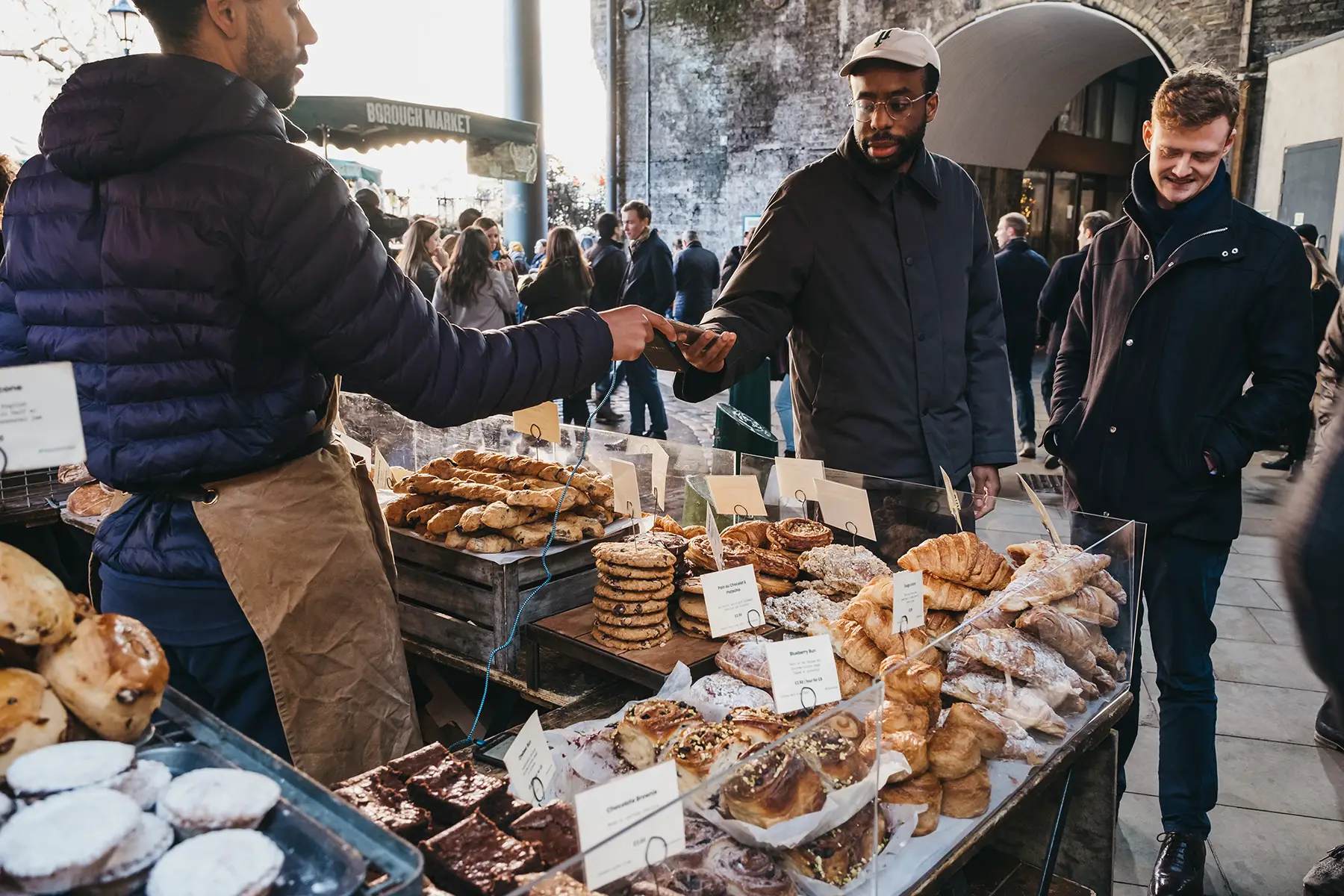
There are various different types of mobile payment providers offering services to UK customers, including Apple Pay, Google Pay, and Samsung Pay as well as a number of smaller providers. See Expatica’s guide to mobile banking in the UK for more information.
Local money transfers
Local money transfers between UK banks are usually free. They generally clear on the same day, if done before around 15:30. These can be easily arranged through your local banking branch or done online if you have all the necessary bank details (customer name, sort code, and bank account number).
International money transfers
To transfer money to overseas accounts using different currencies, you will need the IBAN (international bank account number) and SWIFT/BIC (bank identifier code) number of the recipient. These transfers can take anywhere from minutes to 4–5 working days, depending on where the money is going and the bank or provider you are using. There are alternative money transfer solutions to banks that can sometimes offer easier and cheaper international transfer options, including:
Banking fees in the UK
Charges for banking in the UK vary between different banking providers so it’s advisable to shop around and look for the best deal. You should be able to access a list of fees on the bank’s website and they should provide you with full details of costs when you open a UK bank account. Many standard current accounts are free to use, although some may charge a small monthly or annual administration fee, especially for some of the higher level and premium accounts. Debit card and ATM use is usually free while credit card costs can include the APR (annual percentage rate) charge (usually around 19%), balance transfer fees (around 3% if you switch cards), and annual fees (which can range from free to as much as around £400 a year for some premium cards).
Costs for loans and mortgages from UK banks will depend on the APR, plus there may be additional fees attached. Overdrafts are usually charged at a daily rate for each day overdrawn. Other fees to look out for are administration fees for setting up overdrafts, loans, etc. and charges on late payments and going overdrawn without authorization. International money transfers to foreign currency banks usually start at around £10 per transaction but will be more for large amounts.
Offshore banking in the UK
Expats living in the UK may find that opening an international offshore bank account is the best way to manage their finances. It is possible to open an international offshore account in the UK while working or being based overseas. Offshore accounts are available in GPB, EUR, and USD and usually require larger deposits than standard bank accounts. They offer certain advantages over domestic banks such as favorable tax arrangements.
Banking security and fraud in the UK
Banking fraud presents new challenges in the digital age. In 2022, losses due to financial fraud totalled £1.2 billion in the UK. However, according to UK Finance statistics, £1.46 billion of fraud was prevented in the UK due to security measures, meaning that £2 was saved for every £1 lost. Banks are now using more sophisticated measures to combat fraud, including using biometric data for ID and greater encryption. Common types of fraud include phishing, where someone contacts the account holder pretending to be from the bank in order to access personal information, and credit card fraud.
You can protect yourself against banking fraud by:
- Never clicking on a link to a bank website in an email and never giving personal information or agreeing to any financial transactions if you receive a cold call from someone claiming to be from your bank.
- Never giving out your password or PIN number in an email or phone conversation.
- Only using secure payment platforms when making online payments
- Never leaving yourself logged in on a mobile or shared device.
Lost or stolen bank cards in the UK
If you lose your bank card or it gets stolen, the first thing to do is to contact the emergency number of your bank to cancel the card. Numbers for the main banks in the UK are:
- Barclays: 0800 400 100
- Halifax Bank of Scotland: 0345 944 4555
- HSBC: 0345 600 7010
- Lloyds: 0345 606 2172
- NatWest: 01268 508018
- Nationwide: 0800 055 6611
- Royal Bank of Scotland: 0370 600 0459
- Santander: 0800 9123 123
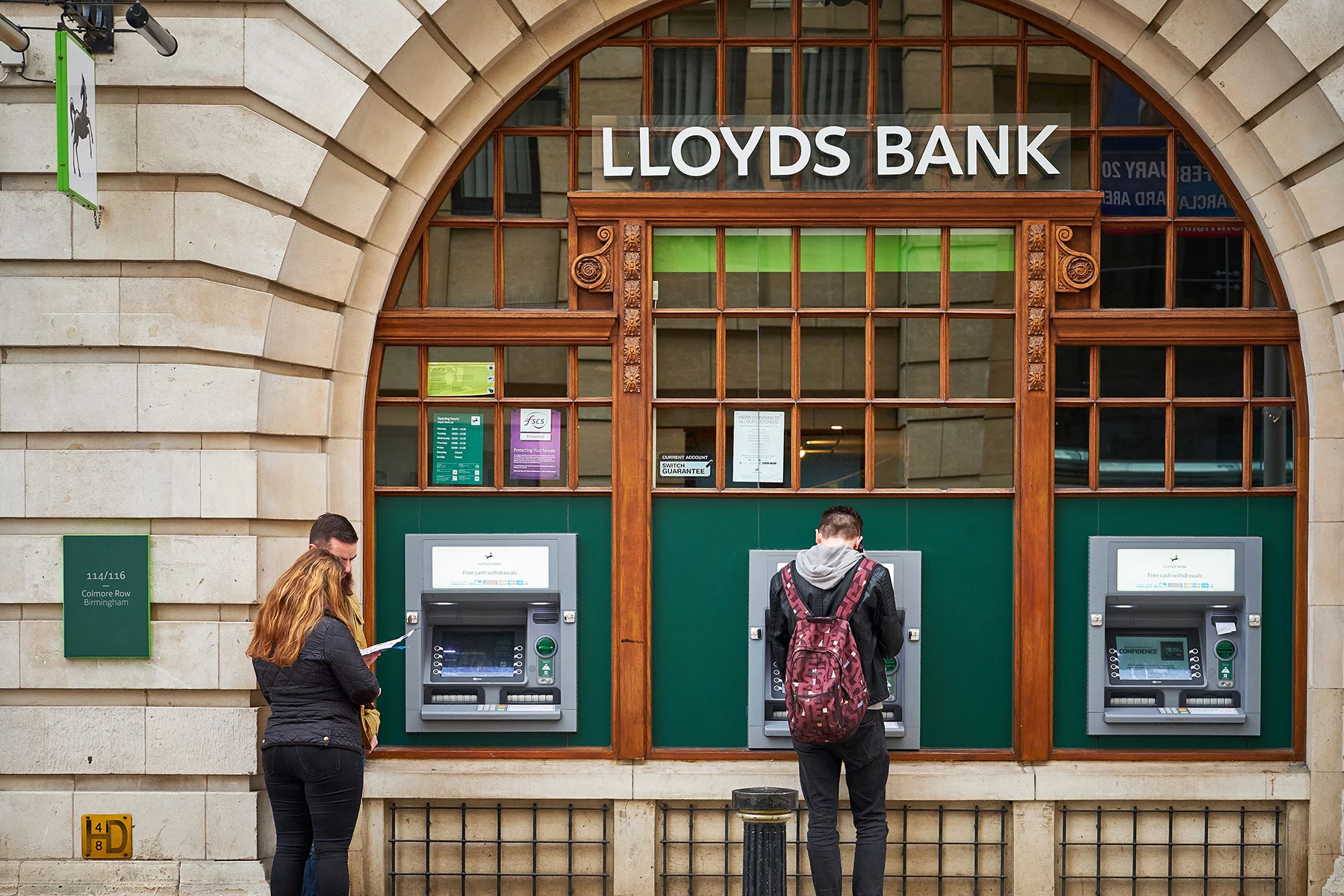
Alternatively, you can call the emergency number of your card provider (e.g. Visa or Mastercard). Once this has been done, you should report the incident at your local police station if your card has been stolen or if you think you have been the victim of fraud or a scam. See here for a list of emergency numbers in the UK.
Making a complaint about banks in the UK
If you are unhappy with the service provided by a bank in the UK, you should first try to resolve the issue through the complaints department of the bank. If you are unhappy with the outcome, you can take the complaint to the Financial Ombudsman Service. You can only do this if you have given your bank eight weeks to deal with the complaint.
Alternatives to using banks in the UK
If you don’t want to use a traditional or online bank, or are unable to open an account, there are a few alternatives to standard banking in the UK, as follows:
- Credit unions – there are around 450 credit unions in the UK which are owned by members who can save and borrow with each other. You can find a credit union near you here.
- Friendly societies – also known as mutual associations, these are similar to credit unions and offer products including savings accounts and insurance. UK friendly societies include Shepherds Friendly. You can find more information here.
- Building societies – building societies are similar to credit unions and friendly societies, but tend to be bigger and offer services such as mortgage lending. The biggest building society in the UK is Nationwide Building Society. There are also numerous regional societies (e.g., Yorkshire Building Society, Leeds Building Society).
- National Savings & Investments – formerly called the Post Office Savings Bank, this is a state-owned savings bank offering options such as savings bonds and index-linked savings certificates.
Useful resources
- Bank of England – central bank of the UK
- Financial Conduct Authority – regulates banks and financial services in the UK
- Financial Ombudsman Service – deals with complaints between banks and their customers
- Money Advice Service – offers free and impartial financial advice
